AI ‘will make 5 million people redundant by 2020’
Financial sector and low-skilled workers most at risk, says WEF
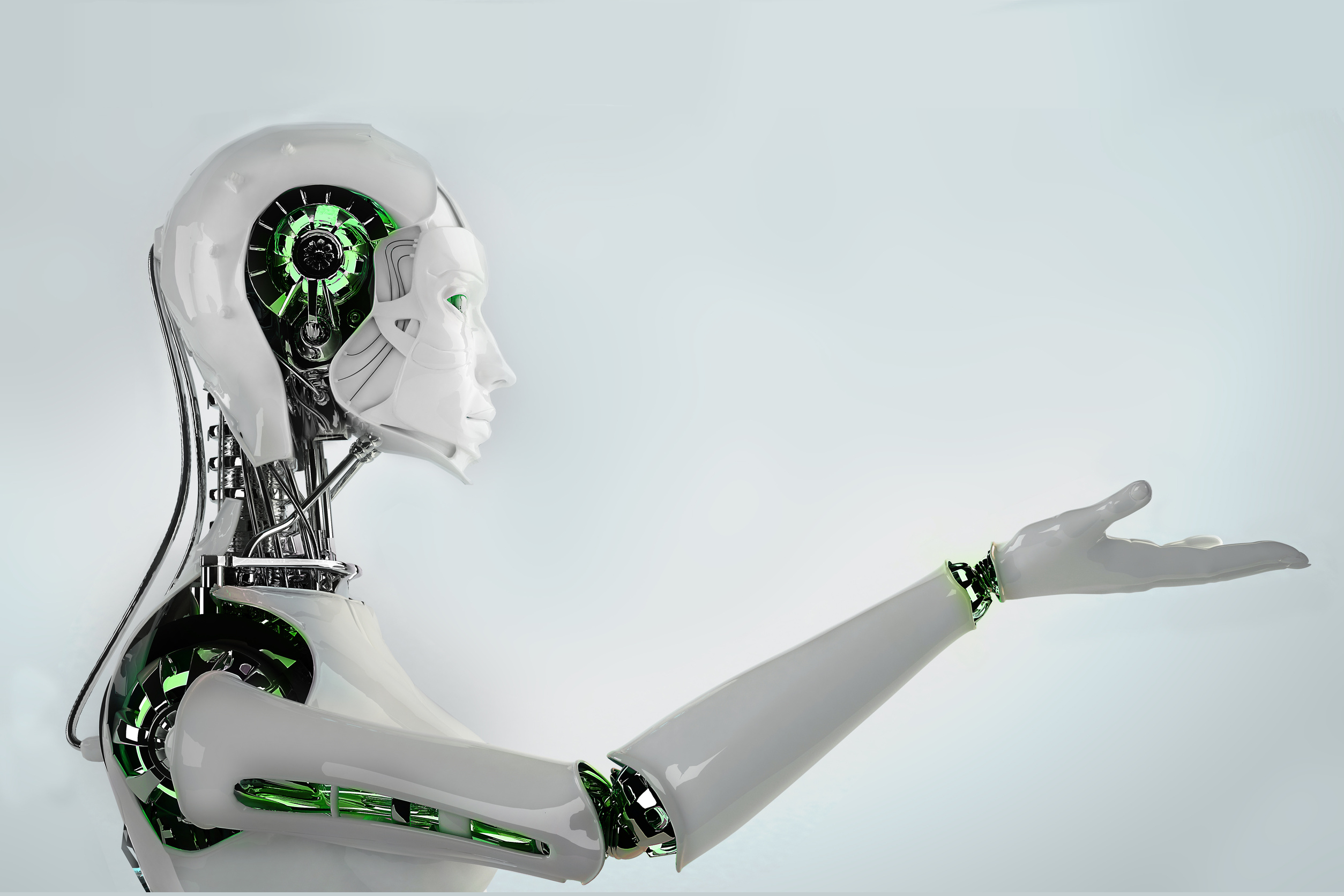
Around five million jobs could disappear by 2020, as advancements in artificial intelligence, robotics, nanotechnology and other fields rock businesses worldwide.
Dubbing it the "fourth industrial revolution", the World Economic Forum (WEF) has predicted that developments in technology will "lay the foundation for a revolution more comprehensive and all-encompassing than anything we have ever seen".
The casualties of this revolution will be people whose jobs can be replaced by sufficiently-skilled software and hardware, with financial services the industry most at risk of disruption, while low-skilled workers will face widespread redundancy, according to WEF's The Future of Jobs report.
It warned: "It is simply not possible to weather the current technological revolution by waiting for the next generation's workforce to become better prepared.
"To prevent a worst-case scenariotechnological change accompanied by talent shortages, mass unemployment and growing inequalityreskilling and upskilling of today's workers will be critical."
Overall, 7.1 million jobs will be lost by 2020, WEF estimated, mainly within office and administration roles. While another two million high-skilled jobs will be created, people whose jobs are lost as a result of the revolution will not be able to fill these roles.
While men will lose 2.65 million jobs, and women 2.45 million jobs, men will gain one job for every three jobs lost, compared to one job gained for every five jobs lost for women.
Sign up today and you will receive a free copy of our Future Focus 2025 report - the leading guidance on AI, cybersecurity and other IT challenges as per 700+ senior executives
The report read: "The conclusion is clear. If current industry gender gap trends persist women are at risk of losing out on tomorrow's best job opportunities."
It recommended companies should provide more support for women to join the highest ranks, offer better work-life balances, and ensure management policies do not discriminate between genders.
-
 The UK AI revolution: navigating the future of the intelligent enterprise
The UK AI revolution: navigating the future of the intelligent enterpriseAs AI reshapes industries and societies, decision-makers in the UK face a critical choice: build a sovereign future or merely import it.
-
 Turning the UK AI revolution into a sovereign reality
Turning the UK AI revolution into a sovereign realityThe UK AI Revolution documentary series posed difficult questions about AI’s hype, control, and future. Now, IT leaders must find the architectural answers
-
 Can robots work safely alongside humans? This one industry leader thinks we're not far away
Can robots work safely alongside humans? This one industry leader thinks we're not far awayNews Humanoid robots and people will be able to work truly side-by-side this year, according to the CEO of one leading robotics company.
-
 Why cutting-edge innovation is killing the planet
Why cutting-edge innovation is killing the planetIn-depth AI and robots will do our work, we’ll get paid in cryptocurrency, and cars will drive themselves – but each of these technologies is a massive energy hog
-
 Why you need process mining in your RPA strategy
Why you need process mining in your RPA strategyWhitepaper Reducing workloads so more time is spent on strategic thinking
-
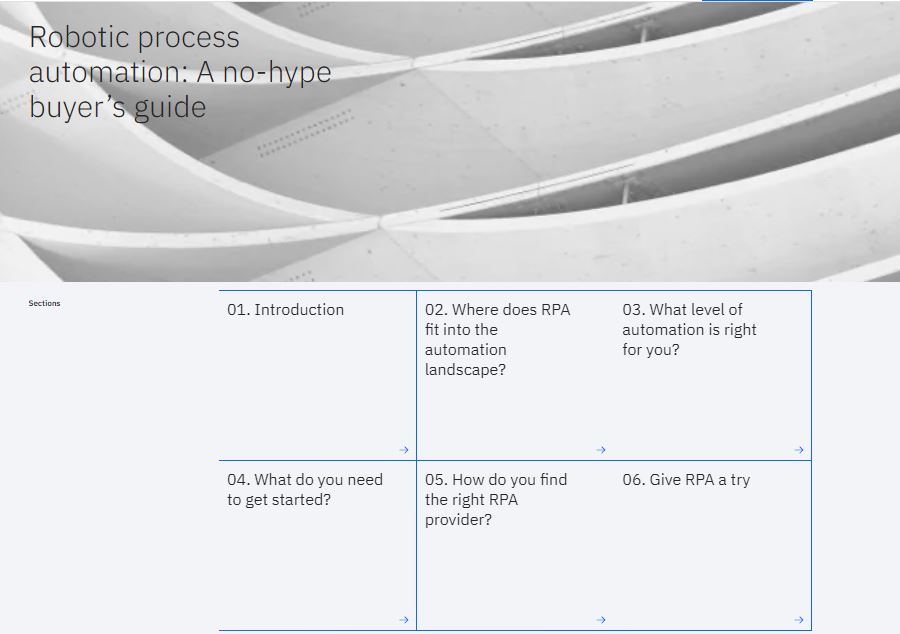 Robotic process automation
Robotic process automationWhitepaper A no-hype buyer's guide
-
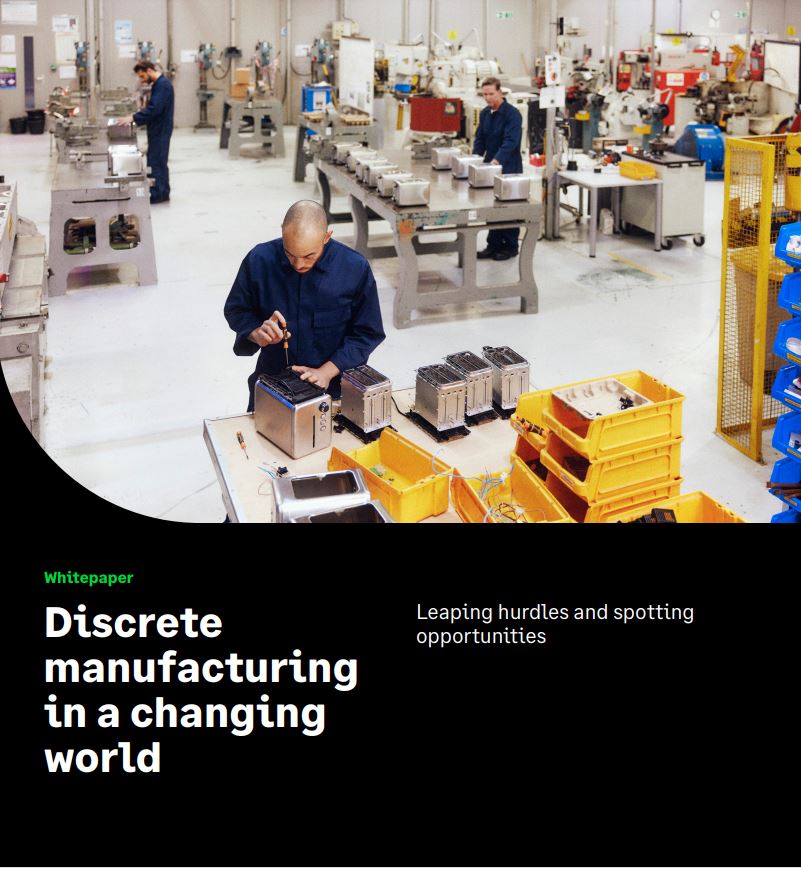 Discrete manufacturing in a changing world
Discrete manufacturing in a changing worldWhitepaper Leaping hurdles and spotting opportunities
-
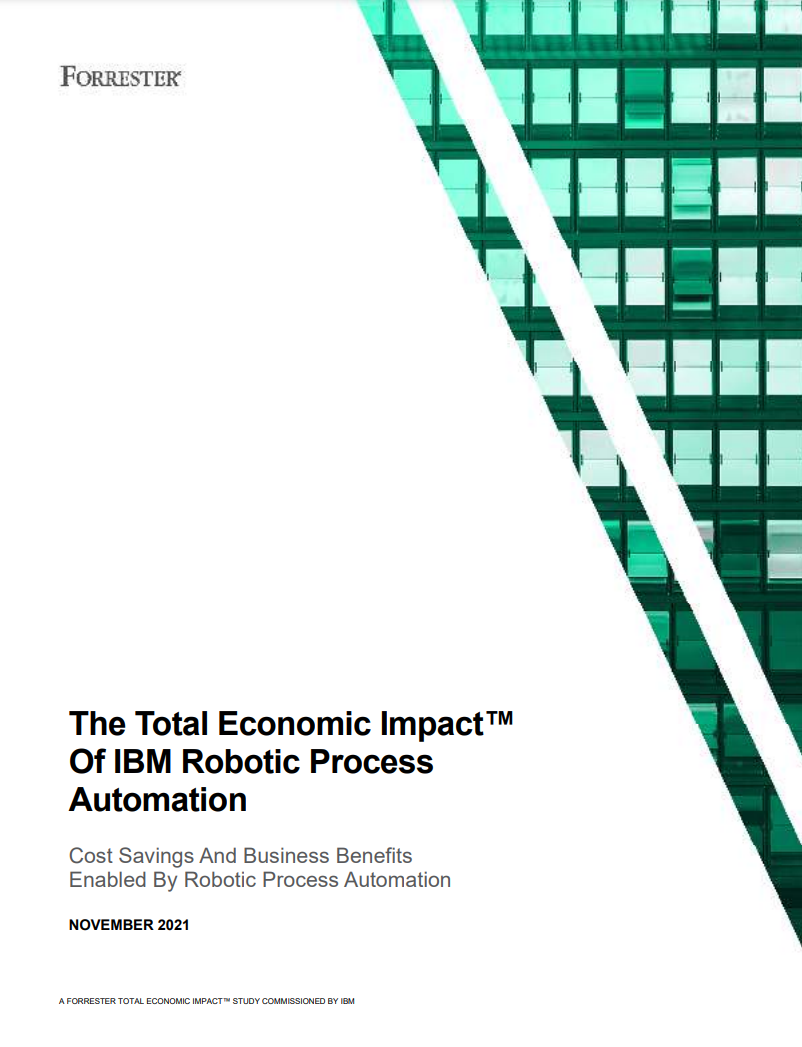 The Total Economic Impact™ of IBM robotic process automation
The Total Economic Impact™ of IBM robotic process automationWhitepaper Cost savings and business benefits enabled by robotic process automation
-
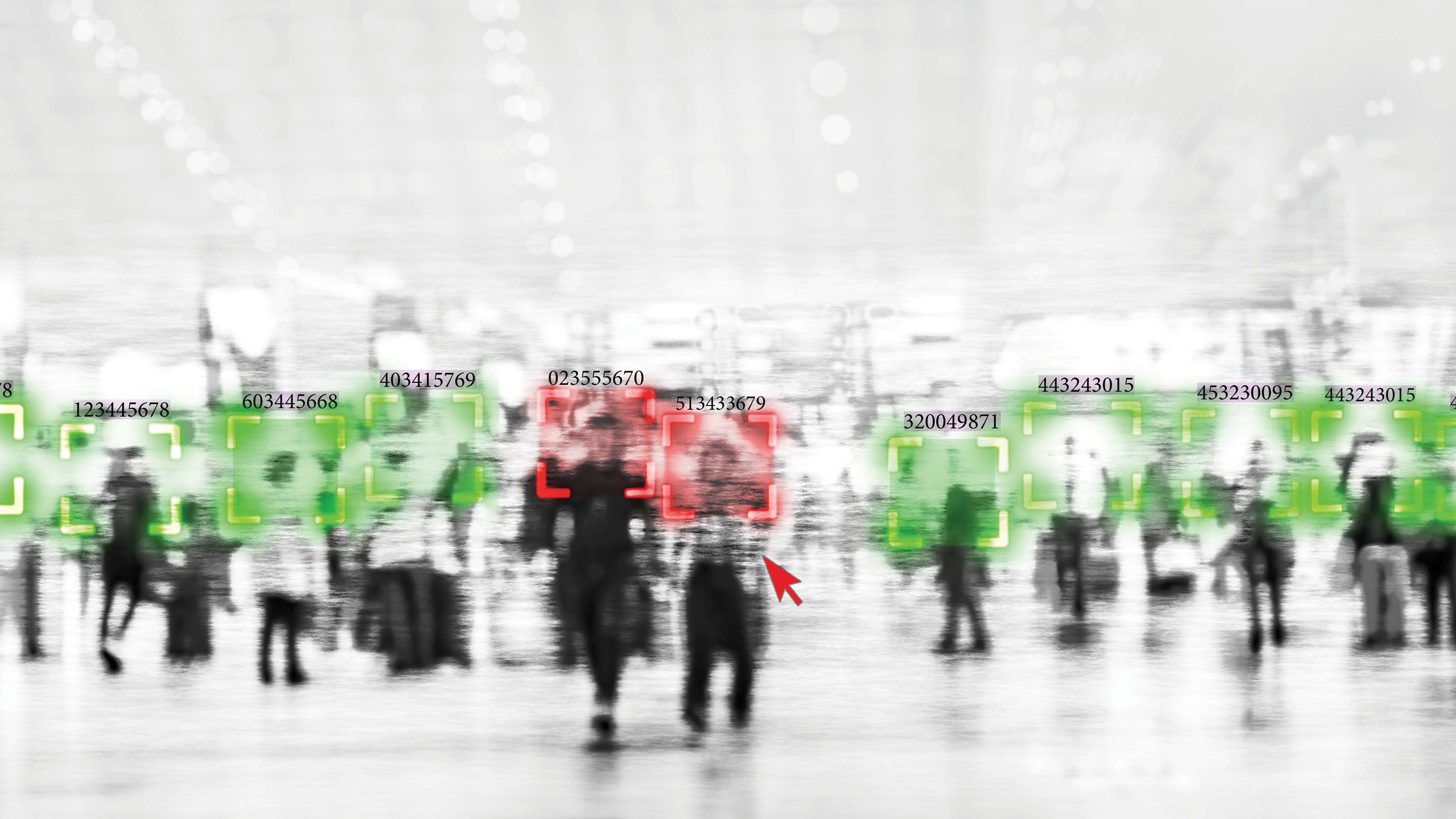 Robot dogs won't save policing – but AI just might
Robot dogs won't save policing – but AI just mightIn-depth Some police forces are turning to robots, AI and facial recognition, but high-profile failures harm public trust
-
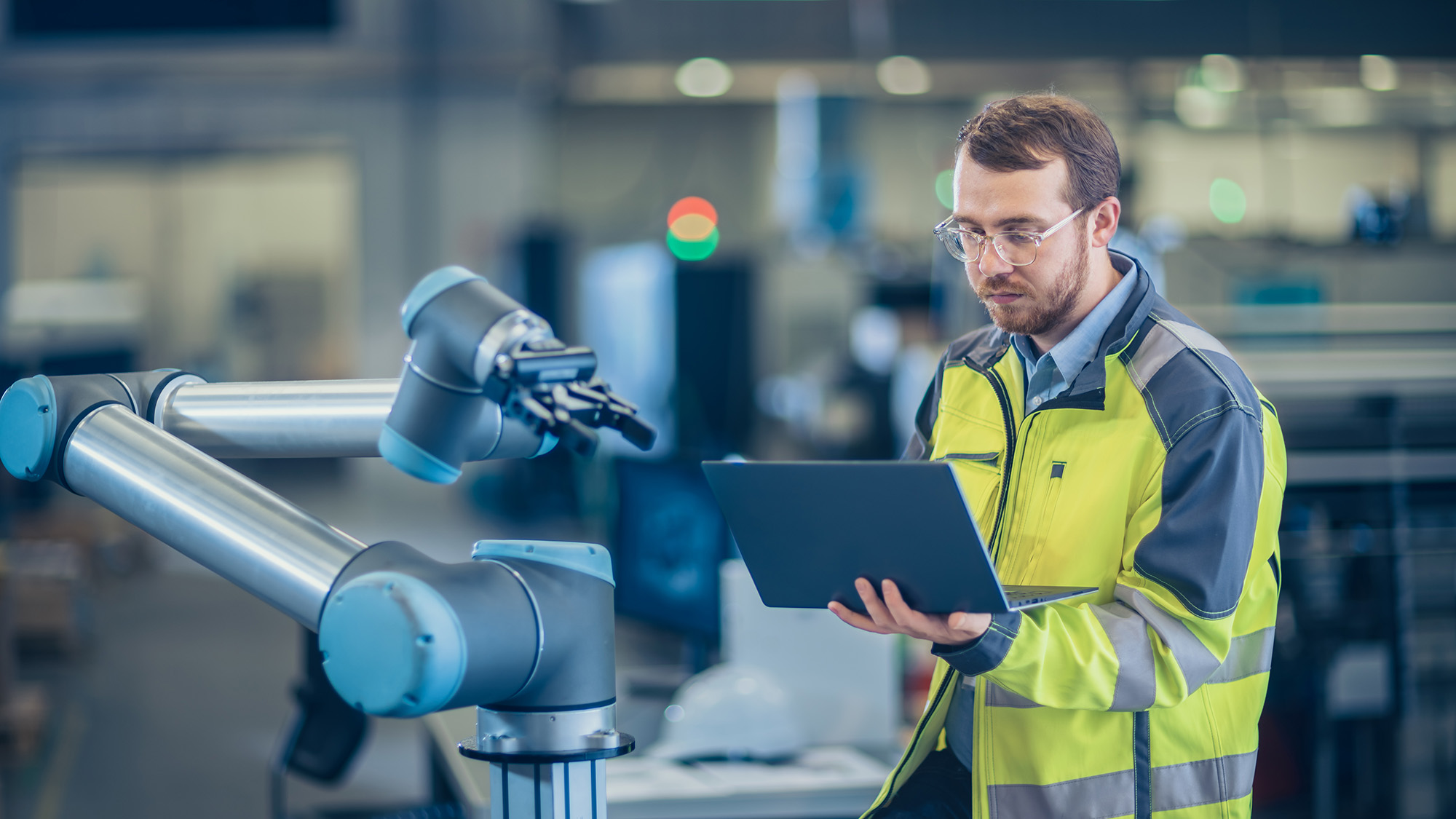 Alphabet tackles industrial robot software market
Alphabet tackles industrial robot software marketNews Intrinsic will teach industrial robots to perform complex tasks